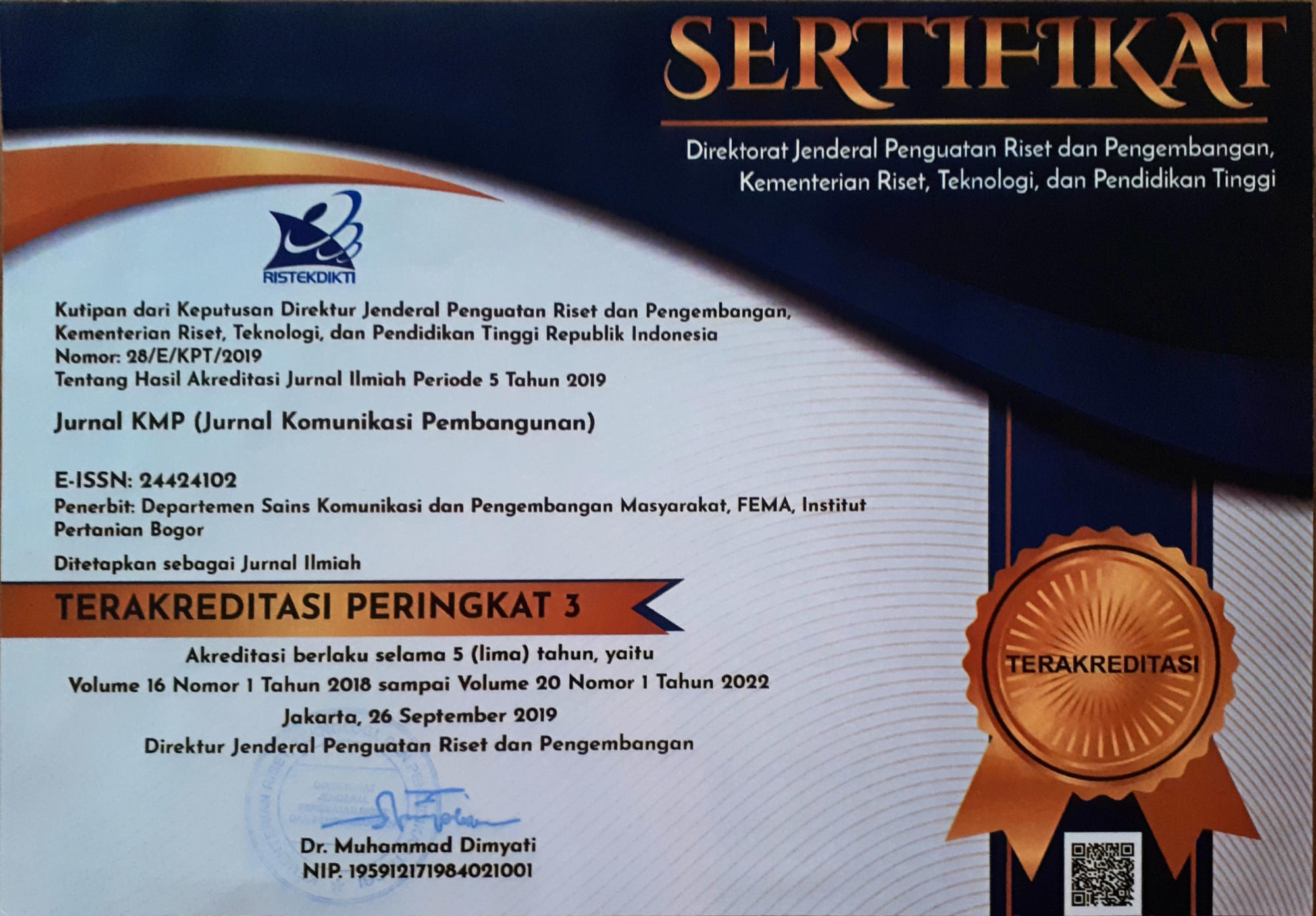Komunikasi Partisipatif pada Sekolah Lapangan Pengelolaan Tanaman Terpadu (SL-PTT)
DOI:
https://doi.org/10.46937/1220148652Abstract
ABSTRACT
Field School of Comprehensive Agriculture Land-Use Management (SL-PTT) is agricultural innovation system mainly directed to improve production of rice applying bottom-up and participative communication approach of the farmers. The study aims to get descriptions on how participative communication can be applied on the SL-PTT program and to analyze decision making process by the farmers to adopt and utilize the technology of rice innovation in their land -use. The study was planned using survey descriptive correlation. The study was done on March-April 2014 covered 80 farmers as respondents
who involved in SL-PTT program. Data and hypothesis were analyzed and tested using multiple linear regression. The evidence showed that participative communication of the farmers toward SL-PTT program was considerable good although they are not in entire program steps. The steps of the PRA and field meeting, activation of farmers in dialogue session is grouped to low by 5% and 12,5%. While in the routine meeting and daily discussion, it is categorized as high, i.e 78,7% and 96,3% because the interaction of the extension worker and the farmers is considerable active. The respect of the extension worker was also supporting. Almost all (91,25%) of the farmers applied all innovations, such as: using high qualified seeds, planting
system, using appropriate fertilizer and water irrigarion, controlling pests, harvest and past-harvest management. Factors which have significant effect on applying participative communication are: farmer’s characteristics, characteristics of the extension worker and forum of communication between the extension worker and the farmers.
Keywords: Communication, Innovation, Partisipative, SL-PTT
Downloads
Downloads
Published
Issue
Section
License
Copyright Notice
Authors who publish with this journal agree to the following terms:
1. Authors contributing to Jurnal Komunikasi Pembangunan retain copyright to their articles but agree to publish them under a a Creative Commons Attribution-Non Commercial- ShareAlike (CC BY-NC-SA)
2. Authors retain the copyright to their work. Users may read, copy and distribute the work in any form, provided the authors and the journal are appropriately credited or cited.
3. Authors are permitted and encouraged to post their articles, after publication, to personal and/or institutional websites and to archive their articles in institutional or funder repositories to insure even greater public access. Supplementary material should also be included when applicable. In addition, authors are permitted to post pre-print versions of their articles to institutional websites, repositories and similar (on the condition that all bibliographic information is also provided). However, authors are not allowed to send their manuscript to other scientific journals once it has been decided to be reviewed by reviewers at Jurnal Komunikasi Pembangunan (Jurnal KMP).
Read our instruction for authors for more information.












